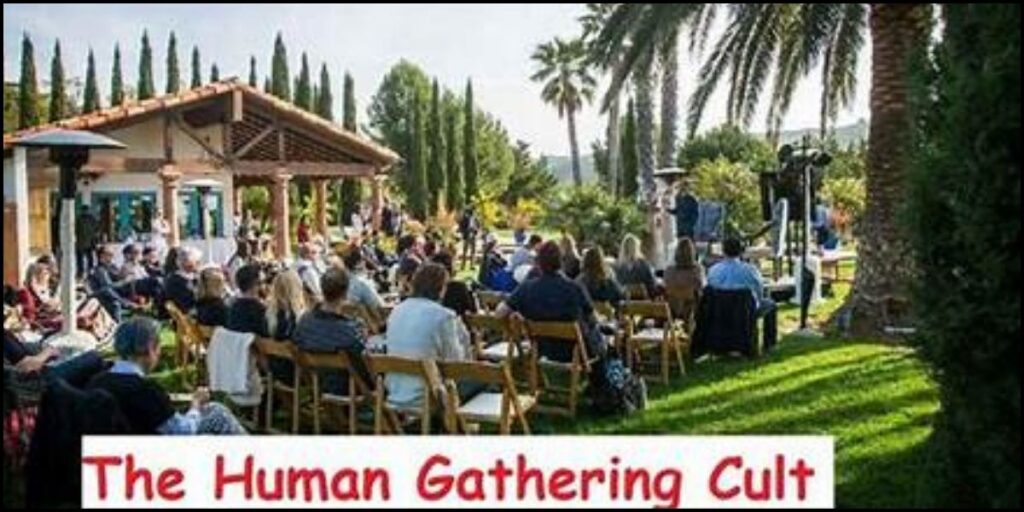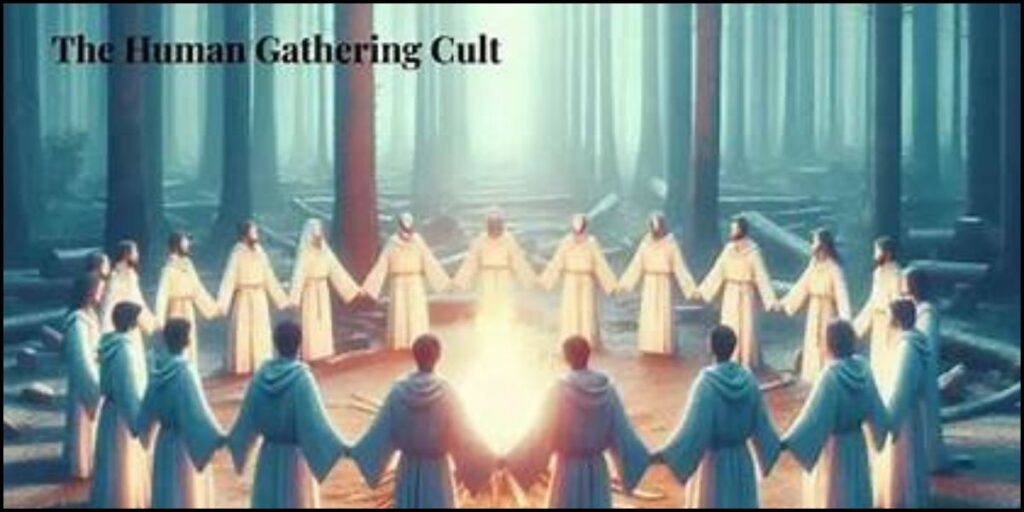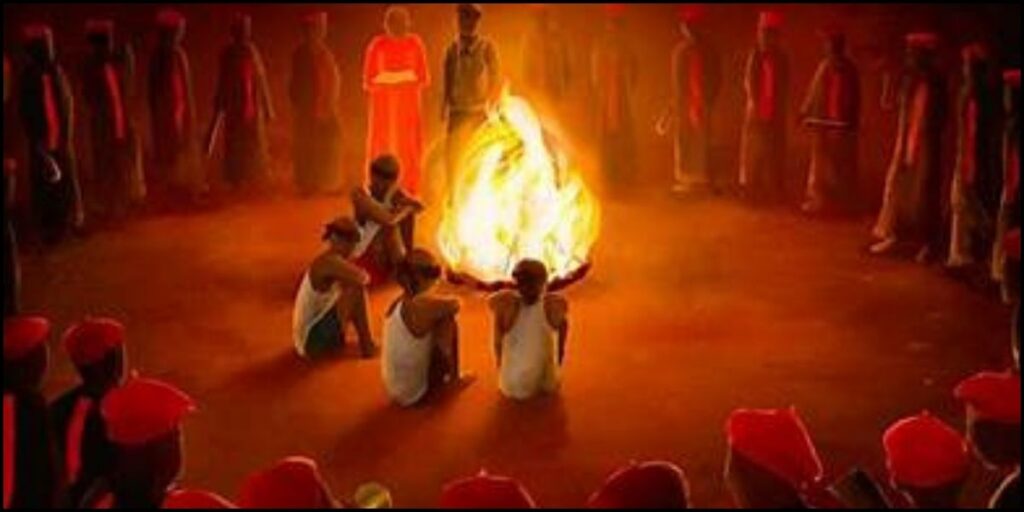The Human Gathering Cult is an intriguing phenomenon that blends ancient traditions with modern day communal practices. At its core it represents a movement centered around collective unity, shared beliefs and a common purpose. This article explores the origins, beliefs and impact of the Human Gathering Cult, delving into its psychological appeal, modern practices, and societal effects.
Origins and Core Beliefs of the Human Gathering Cult

The Human Gathering Cult has roots in ancient communal living practices where people came together for survival, protection and spiritual growth. In early human history social groups were essential for hunting, gathering resources and ensuring the safety of the community. These gatherings fostered strong bonds and group identity which later evolved into more organized systems of belief and ritual.
The core beliefs of the Human Gathering Cult are deeply tied to shared experiences, spiritual growth, and collective purpose. Members of these groups often seek spiritual enlightenment or personal development through participation in group rituals and communal living. The belief in a higher power, a shared destiny or a common mission drives these groups to form strong emotional ties among members. The group’s commitment to their collective identity allows them to face challenges together, creating a sense of security and belonging.
One of the defining characteristics of these communities is the exclusive nature of their membership. Many Human require new members to undergo initiation which reinforces their commitment and ensures their integration into the group’s values and practices. These exclusive communities often operate with a clear distinction between members and outsiders which can lead to social isolation for those who choose to leave or are not accepted into the group.
The Human Gathering Cult: Modern Practices, Psychological Appeal, and Societal Impact

In the modern world the Human has adapted to various social and cultural contexts. Many contemporary cults focus on personal development, spiritual growth and collective well being while others may center on social activism or addressing global challenges.
Daily Practices and Community Living
Life in the Human Gathering Cult is focused on living together and taking part in group activities that help strengthen their shared beliefs. Members often eat together, pray, meditate, and make decisions as a group. These activities, like hiking and working on projects together, help create strong bonds between them. Being part of this community gives people a sense of connection and belonging, which is especially important in today’s world where many feel isolated.
The Psychological Appeal: Why People Join
People join Human Gathering Cults because they are looking for belonging, purpose and personal growth. These groups give individuals a sense of meaning and help them feel part of something bigger especially during uncertain times. Charismatic leaders also play a big role, inspiring devotion and a strong connection by offering a vision for the future and a supportive community.
Notable Examples and Cultural Impact
Human Gathering Cults have a big impact on culture, shaping religions, social groups, and activism. Many spiritual movements started as small community cults and have grown into larger, more accepted organizations. These groups influence how people connect with others and find personal growth by focusing on shared values, group bonding, and collective identity, offering new ways to feel part of society.
Immediate 1000 ProAir: The Ultimate Guide to Respiratory Relief
Challenges, Controversies, and The Future of the Human Gathering Cult

Despite the potential benefits of being part of a Human Gathering Cult there are significant challenges and controversies surrounding these groups. Issues like psychological manipulation, loss of individuality and financial exploitation have raised concerns among critics. Some cult members may experience social isolation as they become more immersed in the group’s world, losing contact with family and friends outside the cult.
There is also the issue of group dynamics and the potential for abuse within hierarchical systems. Leaders with excessive power can manipulate their followers through fear, guilt or promises of spiritual or personal rewards. For example, some cult leaders have been accused of exploiting their followers financially, emotionally or even physically.
As these social groups continue to grow and evolve, it is crucial to address these concerns. In a world increasingly shaped by global challenges, Human Gathering Cults must adapt and offer innovative solutions that encourage positive, meaningful change without exploiting their followers.
The Future of the Human Gathering Cult
The future of Human Gathering Cults is closely connected with technology and social changes. Online platforms make it easier for people to join exclusive communities, share beliefs, and support each other from anywhere in the world. As digital spaces grow, keeping their private nature might become harder. However, these groups can also help tackle global challenges like climate change and poverty by bringing people together to work on real change and innovative solutions.
FAQs: Everything You Need to Know About The Human Gathering Cult
What is the Human Gathering Cult?
The Human Gathering Cult is a community of people who come together based on shared beliefs, practices, and goals. These groups often focus on spiritual growth, personal development, and community building.
Where did the term “Human Gathering Cult” originate?
The term Human Gathering Cult emerged as a way to describe groups that prioritize collective unity and shared experiences over individualism. It combines elements of traditional cults with modern social movements and spiritual practices.
Are all human gatherings part of the Human Gathering Cult?
No, not all human gatherings are part of a Human Gathering Cult. While some social groups may share common traits, such as communal living and spiritual rituals, they are not always associated with the cult dynamics often seen in more exclusive or controlling groups.
How has technology affected human gatherings?
Technology has made it easier for people to join and form virtual communities. Online spaces allow for the sharing of ideas, spiritual beliefs, and communal activities, expanding the reach of Human Gathering Cults and enabling them to address global challenges from different parts of the world.
What should organizers do to ensure the authenticity of human gatherings?
Organizers should prioritize transparency, inclusivity, and respect for individual autonomy. It is important to create a safe environment where members can explore their beliefs and personal development without fear of manipulation or exploitation.
Conclusion: Navigating the World of the Human Gathering Cult
The Human Gathering Cult is a multifaceted phenomenon that offers both challenges and opportunities for personal and collective growth. While these groups provide a sense of belonging and spiritual growth, they must also address the potential risks of social isolation and psychological manipulation. By understanding the core beliefs, modern practices, and societal impact of the Human Gathering Cult, individuals can make informed decisions about their participation, ensuring they find meaningful impact and contribute to a sustainable future.


